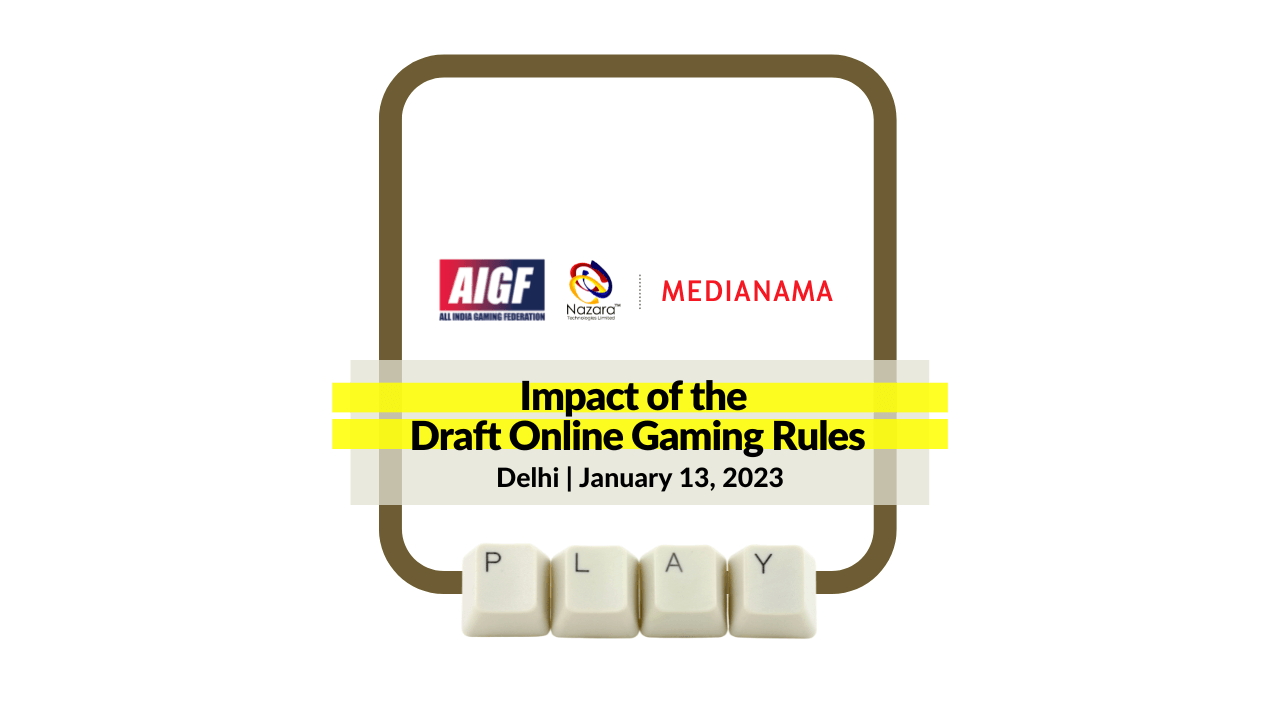“(Random Number Generator) ensures that the game is fair. You need certification to ensure that any platform cannot manipulate the random number generator (RNG). A testing lab will come and check your algorithm to see it can’t be manipulated,” Dhruv Garg, a lawyer associated with the All India Gaming Federation (AIGF), explained at an event on draft online gaming rules organised by Medianama.
Garg was speaking during the session on the impact of the draft rules on the gaming industry at large. The deadline* to submit feedback on the rules has been extended to January 25, 2023. You can submit your comments here.
Understanding Random Number Generator: “An event in a fantasy game or a game which has cards or hurdles in a racing game, etc., are generated in the app or on the game through a RNG. There could be a real (hardware) RNG or a pseudo (software) random number generator,” Garg said.
What do the rules stipulate: The rules clarify that online gaming intermediaries are required to host only registered games and display verification marks. They also have to do the following—
- Set up a grievance redressal system, appoint a grievance officer, publish their contact details, build a mechanism to file and track complaints, and acknowledge them within a specified timeline.
- Publish random number generation (RNG) and no-bot certificates procured from a reputed certifying body.
- Possess a physical contact address in India and respond to government orders or requests within 24 hours.
Key takeaways from the session
Procuring certification: Garg revealed that there are a lot of labs internationally. He added that jurisdictions like the UK, etc., have standards based on which these labs certify the games. “…there are enough reputed labs who do it. They can do it for us also,” he concluded.
Who is going to certify labs: Garg pointed out that RNG is more about transparency than it is about certification. “…the way the RNG tends to work is not as complicated. It’s difficult for computers to generate fully random numbers. The code through which the algorithm generates the number needs to be publicly available to ascertain that this is the code that has been applied in the game. It’s not something that only advanced labs can do,” he said.
What are the concerns: A speaker provided the analogy of credit-rating agencies which face the problem of being paid by the bond issuers. “The credit issuers were paying the credit raters to rate them. A similar problem could manifest here,” he added. Nikhil Pahwa, Founder and Editor, MediaNama, said that it was a distinct possibility because of what has happened with media-rating agencies in the past.
- May not be as complicated: Garg contended that a credit agency can hide behind the claim of a “complicated economic model” if they are caught but it is not so complicated to make such claims with RNG because it is a “provable fact”. “I’m not saying it’s foolproof but it’s not as convoluted as credit rating agencies,” he concluded.
Burden of hiring multiple officers: Pahwa said that gaming platforms are faced with the possibility of hiring three people to comply with the draft rules which could prove to be burdensome for small gaming companies. These people will have to be for the positions of a Chief Compliance Officer, Grievance Officer, and a Nodal Officer.
- No criminal liability: One of the speakers said that the government should allow at least two positions to be merged, adding that unlike Twitter or Facebook, a platform has to ensure that their random number generator is authentic, and they do not have bots. “Personal liability is an onerous requirement for a Chief Compliance Officer,” he concluded.
Cumbersome timelines: Garg said that a longer timeline would be helpful to online gaming companies. The companies have to comply with information requests within 24 hours presently. “…I understand the rationale of 24 hours because once a fraud happens, they (government) say that 24 hours is a good time to get information and act on it but it’s slightly onerous on companies,” he added.
Note: The headline was updated on January 20th, 2023 at 11:58 PM to say “Gaming Rules”
Update: The post was edited on January 20, 2023, at 17:10 to include details about where to submit feedback on the rules.
Also read:





























